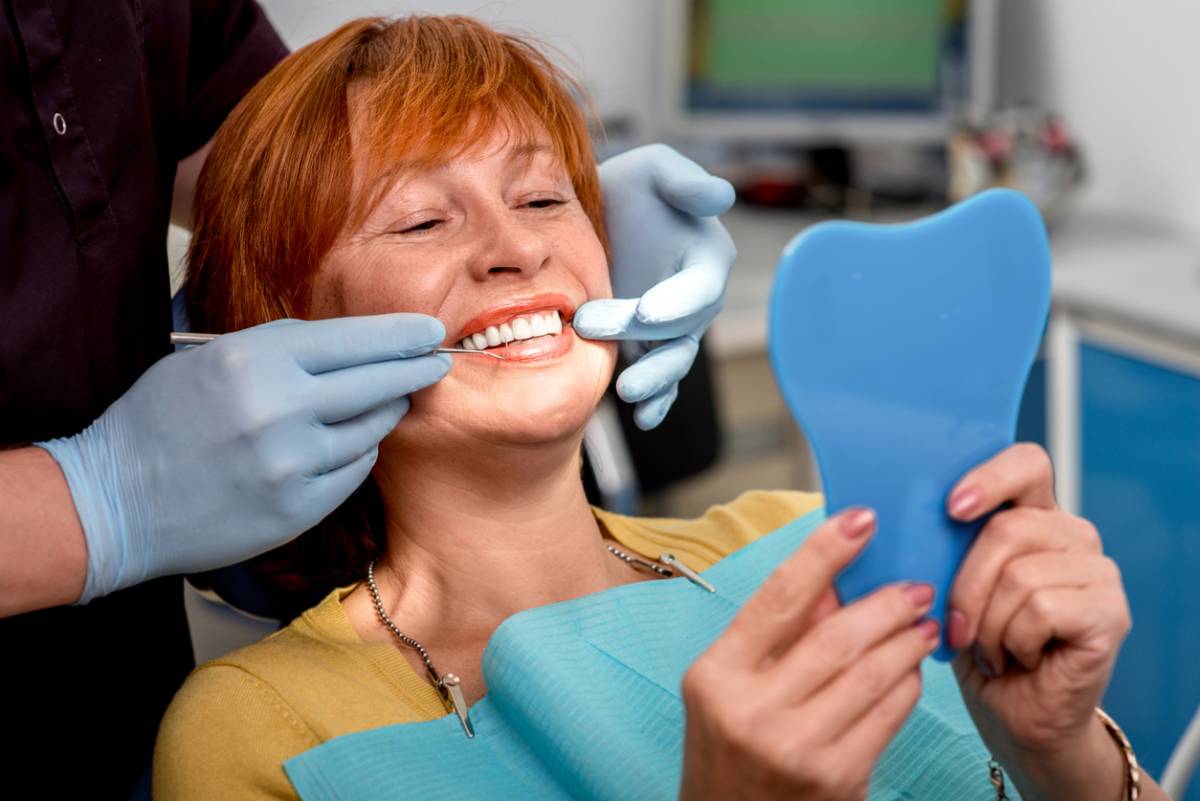Dentures can immediately enhance your quality of life, but adapting to them might pose challenges for some individuals at first. If you’re grappling with the adjustment process, rest assured that our compassionate family dentist is here to assist you. Below we cover how to fix dentures that don’t fit.
How to Fix Dentures That Don’t Fit: A Solutions Guide
At Baseline Dental Care, our goal isn’t solely your comfort; we aim to empower you to laugh, converse, and eat with confidence. If you are struggling to adjust to your full and partial dentures, there’s a chance they aren’t fitting correctly. Here’s how to fix dentures that don’t fit: a solutions guide for your better dental health.
Allow Yourself Adequate Adjustment Time
When your dentures first find their place in your mouth, it will feel a little unfamiliar. You might even be uncomfortable for a couple of days. Remember, your oral structures need time to acclimate to a brand-new set of teeth. As you gradually wear your dentures, your remaining teeth, gums, and bones will gradually conform to their contours, ultimately establishing a sense of normalcy.
It shouldn’t take long for everything to start feeling natural. But it’s best to embrace patience and take things slowly during the initial recovery phase. Speak deliberately, opt for softer foods, and don’t hesitate to contact your dentist if any kind of discomfort persists.
Schedule a Follow-Up Appointment to Confirm a Proper Fit
If weeks pass and you continue to struggle with your dentures, it’s essential to address the issue promptly. Persistent challenges might indicate a loose or broken fit. While this is not very common, loose dentures can occasionally happen and the best way to fix them is to visit a professional ASAP.
While some degree of adaptation is expected, significant ongoing discomfort warrants immediate attention from your dentist. Ensuring that your dentures fit correctly is crucial to prevent them from getting loose or falling out in the future.
Readjust Your Eating Habits
Transitioning to eating with new dentures can be a drag for those who don’t want to give up their favorite hard candies or foods. On the other side of the coin, dentures offer a new sense of freedom to anyone who has been unable to eat solid foods due to having too many missing teeth. Either way, chewing may be uncomfortable as your gums bear the pressure of denture contact along with your teeth.
Hard foods might cause too much pain when using your dentures for the first time. Allow yourself the space to adapt by introducing smaller and softer food portions with every meal. As you grow accustomed to the sensation of dentures, you can gradually reintroduce your preferred foods without risking too much damage to your mouth.
Maintain Diligent Oral Hygiene Practices
Dentures necessitate consistent cleaning, similar to natural teeth. While traditional abrasive toothpaste and hard-bristled brushes are unsuitable, proper care remains essential. Ensure nightly cleaning by placing dentures in a dental solution to eliminate food particles and bacteria. Simultaneously, uphold your oral hygiene routine for your natural teeth and gums—brushing, flossing, and rinsing twice daily. Elevating your oral healthcare is paramount, especially with dentures in place.
Start a Confident Journey to Better Dental Health with Baseline Dental Care
If you recently got some brand-new dentures and you are having trouble adjusting to them as quickly as everyone else seems to be, we want to schedule a consultation with you. A custom set of dentures will allow you to eat, speak, breathe, and smile more confidently than you have been able to for a long time. Learn more about the benefits you can gain from full or partial dentures when you contact Baseline Dental Care today!


